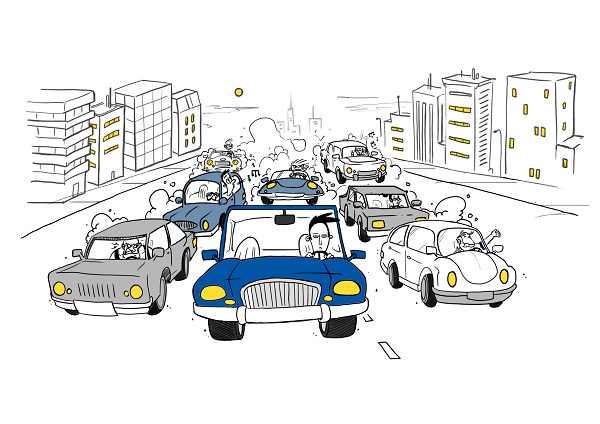
Whether on summer holidays, or commuting to work, the time people spend on the road can be a stressful and frustrating experience, as indicated by social psychologists from the London School of Economics and Political Science (LSE).
An ongoing study on the social psychology of road safety conducted jointly by LSE and tyre manufacturer Goodyear, has identified different ways that people respond when they interact with other drivers on the road. These are based on how they deal with their own feelings and their uncertainty as to the behaviour of other road users.
Through focus groups and in-depth interviews with European drivers, researchers found seven personalities frequently manifest themselves:
These ‘driving personalities’ emerge in different situations when drivers interact with others on the road.
“Much of the time we can sit happily in the comfortable bubble of our car, but around any corner we may have to interact with other drivers. This makes the road a challenging and uncertain social environment. While we may worry about others’ driving, this research suggests that their behaviour also depends on what we do. We create the personalities that we don’t like. From a psychological point of view, these different types of personalities represent different outlets that drivers use to deal with their frustrations and strong feelings. We are not always entirely one or the other. Depending on the situation and the interaction with others, most of us will find several of these profiles emerge,” explained Dr. Chris Tennant, social psychologist, who is leading the research project at LSE.
“Most of these behaviours can lead to dangerous situations on the road. Understanding what type of behaviour we exhibit and what situations provoke it is a first step for all of us to better control it, thereby creating a safer driving environment for ourselves and others on the road. Besides effective enforcement of laws against aggressive driving; education and life–long learning remain the most powerful public strategies to address this social and emotional aspect of driving and to achieve the greatest improvements in road safety,” recommended Olivier Rousseau, Goodyear vice president consumer tires in Europe, Middle East and Africa.
The personality types emerged out of the first part of the joint research project, which takes a qualitative look into driving behaviour through focus groups and in-depth interviews. With the research, LSE and Goodyear are seeking to identify how drivers influence each other’s behaviour on the road.
The second part of the project is a pan-European study across 15 countries. The final results and analysis of the European-wide study are expected in October.








